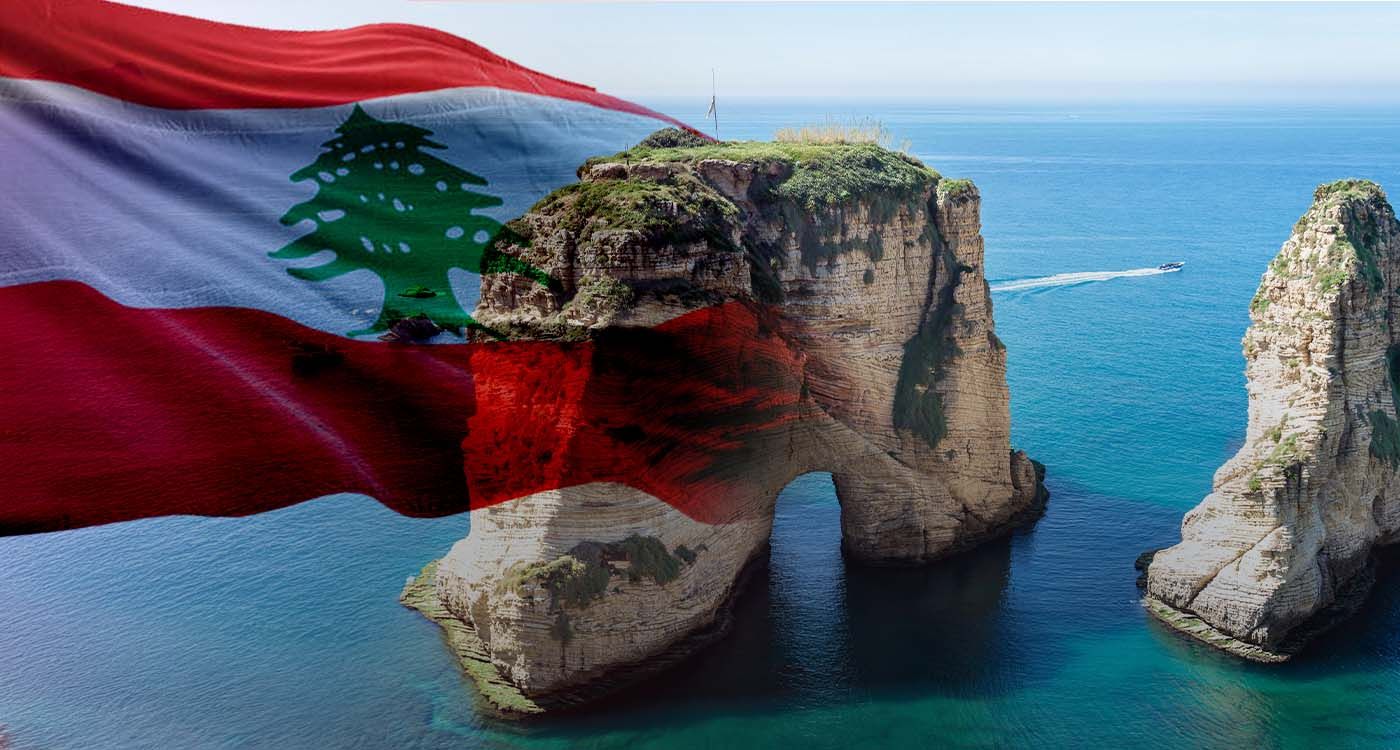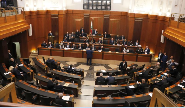
In Lebanon, even rocks can spark existential crises. The Raoucheh Rock has become the focus of a growing political and public controversy after plans emerged to project an image of Hezbollah’s former Secretary-General Hassan Nasrallah, alongside Hashem Safieddine, onto the rock to mark the anniversary of their death last year.
What began as a commemoration attempt quickly became a provocation, a theatrical display. The initiative appears less an act of remembrance than an effort to assert a specific narrative over one of Beirut’s most iconic sites, situated at the heart of the capital.
City authorities are rejecting this initiative, determined to prevent any political claim from being imposed on Beirut – a claim that does not belong to the city. Beirut is already a city scarred by Hassan Nasrallah: he hailed the day of the 1982 invasion as “glorious,” was held internationally accountable by the Special Tribunal for Lebanon for the country’s largest assassination – the killing of the late Prime Minister Rafic Hariri in 2005 – and bears direct or indirect responsibility for the catastrophic August 4, 2020 explosion, when massive stores of ammonium nitrate were kept in a warehouse, intended for use by the former Syrian regime in its crimes.
Should someone like Nasrallah have his image displayed on the Raoucheh Rock? Absolutely not. Reason rejects it, patriotism rejects it, and even the law rejects it. What if a portrait of Bachir Gemayel were placed on the Baalbek Citadel, Pierre Gemayel’s on the Tyre Citadel, or Rafic Hariri’s image hoisted in the southern suburbs?
In this context, the Prime Minister’s decision to ban celebrations in public spaces without prior government approval stands as an act of restoring Beirut’s dignity – a measure aimed at protecting the city’s residents, still wounded by past assaults, from feeling further victimized or treated with condescension.
On the other hand, it is high time for Hezbollah to abide by the law without dodging, making excuses, or displaying arrogance. If the Lebanese Forces need permission to hold a memorial mass at Fouad Chehab, if the Free Patriotic Movement requires approval to demonstrate in front of the Central Bank, and if the Future Movement must secure a permit to commemorate February 14 in downtown Beirut, then all the more reason for Hezbollah – the party chiefly responsible for routinely bypassing the law and treating the constitution and regulations as optional whenever it suits them – to comply as well.
It is imperative to address these issues decisively, to prevent Hezbollah from treating the state as a mere extension of its own authority. The situation could escalate into a serious crisis, potentially sparking clashes on the ground, yet it also presents a crucial opportunity for the state to assert its authority under the law and ensure that all Lebanese are treated equally, without privilege or favoritism.



Comments